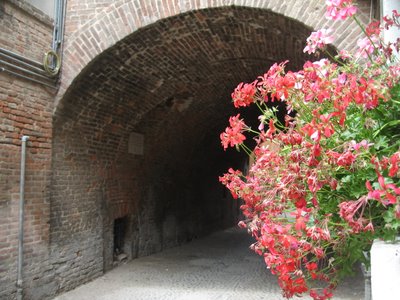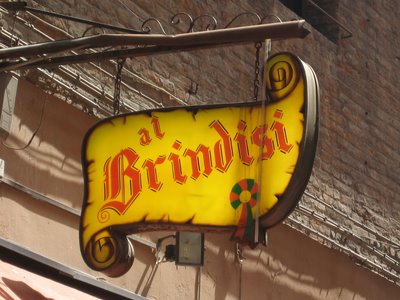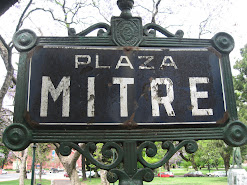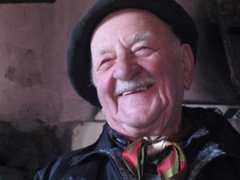
Not long after the university there started accepting students in 1391, a place called Hostaria del Chiuchiolino opened nearby (ciucco is italian slang for drunk). Copernicus took a law degree there in 1503 and while I'm sure he was very studious, the story is that he lived above this establishment, which is now called Al Brindisi(The Toast). I went there with a group of students from California and their italian professor. They told me the best time to jump in the moat is early morning - after the night watchman has gone home to bed. But having a flight out the next morning I was not able to enjoy a morning swim.
Back here in Buenos Aires I went to the live music venue called Torquato Tasso that's best known as a milonga. I was surprised to find out that the name does not refer to a difficult tango step, but rather to another famous patron of Al Brindisi.
Torquato Tasso was a 16th century poet who received an invitation to join the brilliant court of Ferrara at 21 years of age. By this time Torq was already a famous poet and a veteran of the Italian court circuit. As poet-in-residence at the house of Este, Torquato found many pleasures. Byron later wrote of his legendary love for princess Leonora d'Este, daughter of Lucrecia Borgia and Duke Alfonso d'Este. Tasso's benefactor was princess Leonora's nephew, Duke Alfonso II.
Tasso was also in love with two renowned singers who were members of the court's illustrious concerto delle donne: Laura Peverara and Lucrezia Bendido, the future wife of Macchiavelli.
But Torquato was always in and out of crisis mode. His mental health deteriorated over the years and he became more and more paranoid and neurotic. In 1577 he knifed a servant he thought was a spy and was put in a convent. Later he disrupted the Duke's third wedding by shouting insults at people and was sent to St Anna's hospital where he stayed on and off for seven years. After his release in 1586 he wandered around Italy behaving badly. Physically and mentally he continued to decline. But Tasso was admired and loved by so many that he always managed to find new benefactors such as Pope Clement VIII. He died in 1595 at the Convent of St Onofrio.
Tasso's poems were instant classics and required reading in Europe through the 19th century. Goethe wrote a play about him called Torquato Tasso.






























































































